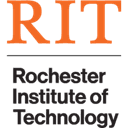This course is part of Cybersecurity.
This comprehensive course teaches the principles and techniques of digital forensics investigation. Students learn core forensic procedures for court-admissible evidence collection, legal requirements, and ethical considerations. The curriculum covers forensic investigations on both Unix/Linux and Windows systems with different file systems. Topics include incident response, memory forensics, file system analysis, and advanced artifact investigation. Students gain practical experience with forensic tools and report analysis through hands-on activities.
4.5
(13 ratings)
57,908 already enrolled
Instructors:
English
English
What you'll learn
Master court-admissible investigative procedures for digital forensics
Learn to analyze Windows and Unix/Linux file systems and perform file recovery
Develop skills in applying forensic tools for evidence acquisition and preservation
Gain expertise in system image analysis and forensic report preparation
Understand incident response procedures and memory forensics techniques
Master advanced artifact analysis including rootkit and steganography detection
Skills you'll gain
This course includes:
Live video
Graded assignments, Exams
Access on Mobile, Tablet, Desktop
Limited Access access
Shareable certificate
Closed caption
Get a Completion Certificate
Share your certificate with prospective employers and your professional network on LinkedIn.
Created by
Provided by

Top companies offer this course to their employees
Top companies provide this course to enhance their employees' skills, ensuring they excel in handling complex projects and drive organizational success.





There are 7 modules in this course
This advanced course in digital forensics covers the complete spectrum of computer-related crime investigation. Students learn essential procedures for collecting court-admissible evidence, including proper handling and documentation techniques. The curriculum provides in-depth coverage of both Unix/Linux and Windows forensic investigations, teaching students how to analyze different file systems, perform memory forensics, and handle advanced artifacts. Through practical exercises, students gain experience with professional forensic tools and learn to prepare comprehensive investigation reports.
Digital Forensics Fundamentals
Module 1
Unix/Linux Fundamentals
Module 2
Unix/Linux Forensic Investigation
Module 3
Windows Incident Response
Module 4
Windows Fundamentals
Module 5
Windows Forensic Investigation
Module 6
Advanced Artifacts
Module 7
Fee Structure
Individual course purchase is not available - to enroll in this course with a certificate, you need to purchase the complete Professional Certificate Course. For enrollment and detailed fee structure, visit the following: Cybersecurity
Payment options
Financial Aid
Instructor

1 Course
Distinguished Cybersecurity Professor and Digital Forensics Expert
Yin Pan serves as Professor in the Computing Security department at Rochester Institute of Technology bringing extensive expertise in digital forensics and IT security since joining RIT in 2002 Her academic credentials include BS and MS degrees from Shanghai Normal University China followed by MS and PhD degrees in Computer Science and Systems Science from Binghamton University Her research focuses on digital forensics IT security audits and malware detection with significant contributions to automated forensic analysis and behavioral-based security approaches She has led innovative educational initiatives including the development of gamified digital forensics course modules for undergraduate students supported by NSF funding Her scholarly work includes numerous publications on cybersecurity forensics and malware detection with her research being widely cited in the field Her teaching and research have significantly influenced computer forensics education particularly through the development of game-based learning approaches Her expertise extends to network security systems administration and forensic analysis of virtual environments She has contributed to multiple books and conference proceedings focusing on digital forensics and cybersecurity education Her work continues to shape how digital forensics and cybersecurity are taught and practiced in academic and professional settings
Testimonials
Testimonials and success stories are a testament to the quality of this program and its impact on your career and learning journey. Be the first to help others make an informed decision by sharing your review of the course.
Frequently asked questions
Below are some of the most commonly asked questions about this course. We aim to provide clear and concise answers to help you better understand the course content, structure, and any other relevant information. If you have any additional questions or if your question is not listed here, please don't hesitate to reach out to our support team for further assistance.


